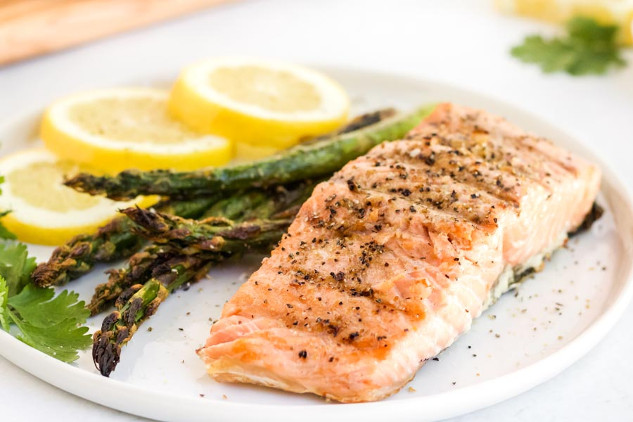
In this Article:
- How do omega-3 and omega-6 affect cancer risk?
- Can balancing these fatty acids reduce cancer likelihood?
- Insights from a major UK Biobank study on fatty acids and cancer
- Why omega-3 might increase prostate cancer risk
- Practical tips for a balanced diet with omega-3 and omega-6
Can Fatty Acids Reduce Cancer Risk?
by Robert Jennings, InnerSelf.com
Most of us have heard about the benefits of omega-3 and omega-6 fatty acids. These essential fats are often praised for their role in heart health, brain function, and overall well-being. However, recent research reveals a more profound story linking these fats to cancer risk and prevention. Could the balance of these fatty acids in our blood actually influence whether we develop cancer? And if so, what does this mean for our diets and health habits?
The recent UK Biobank study, a significant milestone in our understanding of omega-3 and omega-6 fatty acids, involved more than 250,000 participants. By examining blood levels of these essential fats, researchers have unveiled intriguing associations with cancer incidence, providing us with a comprehensive view of how the fats we consume may impact our long-term health. Let’s delve into the findings and their implications for all of us, keeping us at the forefront of this vital research.
Understanding Polyunsaturated Fatty Acids (PUFAs)
Omega-3 and omega-6 are polyunsaturated fatty acids (PUFAs), essential for health but not produced naturally by our bodies. Omega-3 fatty acids are found in fatty fish (salmon, mackerel, sardines), flaxseed, and walnuts. They’re known for their anti-inflammatory properties, which can benefit heart health and reduce the risks of various chronic diseases.
On the other hand, omega-6 fatty acids, common in vegetable oils (like corn and soybean oil), nuts, and seeds, play a different role. While they, too, are essential for body functions, excessive omega-6 intake—especially without sufficient omega-3s—can contribute to inflammation in the body, which is linked to various health issues.
Historically, our ancestors had a balanced intake of omega-3 and omega-6. Still, modern diets tend to lean heavily on omega-6, often disrupting this natural harmony. As we dive into the research, we’ll see how these two fatty acids may affect cancer risk differently.
In one of the most extensive studies, the UK Biobank followed over 250,000 participants for nearly 13 years. Researchers collected blood samples and analyzed omega-3 and omega-6 levels to determine any potential links to overall and specific types of cancer.
Notably, instead of relying on self-reported diets, which can often be inaccurate, the study measured actual blood levels of these fatty acids. This objective approach provided a clearer picture of the body’s PUFA status. It allowed researchers to compare these levels directly with cancer outcomes over time.
With such a large cohort and detailed tracking, this study offered a rare opportunity to see how fatty acids interact with cancer risk on a broader scale across different demographics and health backgrounds.
Omega-6, Omega-3, and Cancer Risk
The study’s findings were surprising and nuanced. Overall, higher levels of omega-6 and omega-3 in the blood were linked to a slight reduction in cancer risk. Specifically, the researchers found:
-
Reduced Overall Cancer Risk: Omega-3 and omega-6 levels were associated with a lower risk of developing cancer. This protective effect was consistent across many types of cancer, suggesting that balanced PUFA levels may indeed play a role in lowering cancer risk.
-
Site-Specific Cancer Differences: While higher levels of omega-6 were linked to lower risks for cancers like colon, lung, and stomach, omega-3 showed mixed results. Most notably, high omega-3 levels were associated with a slightly increased risk of prostate cancer. This unexpected finding suggests that the effects of omega-3 and omega-6 vary depending on the cancer type.
-
Prostate Cancer Risk with Omega-3: The increased prostate cancer risk observed with high omega-3 levels caught many by surprise. While the exact reasons are unclear, some scientists suggest that prostate cells may react differently to omega-3 or that other factors may be at play in this type of cancer. This underscores the complexity of nutrient interactions in the body.
The exact ways in which omega-3 and omega-6 affect cancer risk are still being explored, but several mechanisms have been proposed:
-
Inflammation and Cell Growth: Omega-3 fatty acids are known for their anti-inflammatory properties, which can inhibit pathways linked to cancer cell growth. Omega-6, when balanced with omega-3, can support healthy cell functions. However, an excess of omega-6, as seen in many Western diets, may promote inflammation. This condition can lead to abnormal cell growth and increase cancer risk.
-
Membrane Structure and Cell Signaling: PUFAs play a critical role in the structure of cell membranes, affecting how cells communicate and grow. Omega-3, in particular, has been shown to stabilize cell membranes, potentially reducing the likelihood of cellular changes that lead to cancer.
-
Ratio Matters: The body's ratio of omega-6 to omega-3 appears crucial. Studies suggest that an imbalance—specifically, too much omega-6 and too little omega-3—can lead to chronic inflammation and disrupt healthy cellular processes. Ideally, a balanced ratio of these fatty acids may create an environment less conducive to cancer development.
Broader Implications for Health and Diet
So, what does this all mean for those of us striving for healthier choices? The key takeaway from this study is that balance is crucial. While omega-3 and omega-6 fats are beneficial for health, their ratio could be the key to their cancer-protective effects. This understanding empowers us to make informed dietary choices and take control of our health.
-
Dietary Recommendations: A diet rich in omega-3 and omega-6 can be beneficial. Omega-3 sources, such as fatty fish, flaxseed, and walnuts, help ensure anti-inflammatory support, while moderate omega-6 intake from nuts and seeds can complement these benefits. Avoiding excessive processed foods and oils high in omega-6 can help maintain a healthier balance.
-
Supplements and Whole Foods: Although omega-3 supplements are popular, it’s essential to approach them thoughtfully. In light of findings suggesting a potential prostate cancer link, men may want to consult with healthcare professionals before using high-dose omega-3 supplements. Whole food sources containing additional nutrients and fiber generally offer a safer approach.
This study reinforces the idea that omega-3 and omega-6 fatty acids have roles in reducing cancer risk but highlights the importance of a balanced approach. While high levels of omega-3 and omega-6 appear to protect against several types of cancer, they are not universal shields. Cancer risk is complex and shaped by many factors, and we cannot attribute it to any single nutrient alone.
For most people, focusing on a balanced intake of omega-3 and omega-6—avoiding extremes—is a practical approach to better health. It’s one part of the broader picture, including a varied diet, physical activity, and mindful living. As science continues to explore these essential nutrients, we gain a clearer understanding of how our choices today shape our health tomorrow.
In the end, let this study remind us of the wisdom in balance. Rather than looking for quick fixes, we can aim for harmony, nurturing our bodies with foods that support immediate health and lifelong vitality. After all, every choice we make toward balance is a step toward a healthier future.
About the Author
 Robert Jennings is co-publisher of InnerSelf.com with his wife Marie T Russell. He attended the University of Florida, Southern Technical Institute, and the University of Central Florida with studies in real estate, urban development, finance, architectural engineering, and elementary education. He was a member of the US Marine Corps and The US Army having commanded a field artillery battery in Germany. He worked in real estate finance, construction and development for 25 years before starting InnerSelf.com in 1996.
Robert Jennings is co-publisher of InnerSelf.com with his wife Marie T Russell. He attended the University of Florida, Southern Technical Institute, and the University of Central Florida with studies in real estate, urban development, finance, architectural engineering, and elementary education. He was a member of the US Marine Corps and The US Army having commanded a field artillery battery in Germany. He worked in real estate finance, construction and development for 25 years before starting InnerSelf.com in 1996.
InnerSelf is dedicated to sharing information that allows people to make educated and insightful choices in their personal life, for the good of the commons, and for the well-being of the planet. InnerSelf Magazine is in its 30+year of publication in either print (1984-1995) or online as InnerSelf.com. Please support our work.
Creative Commons 4.0
This article is licensed under a Creative Commons Attribution-Share Alike 4.0 License. Attribute the author Robert Jennings, InnerSelf.com. Link back to the article This article originally appeared on InnerSelf.com
Article Recap:
The recent UK Biobank study explores the associations between blood levels of omega-3 and omega-6 fatty acids and cancer risk. Findings show that higher levels of both fatty acids are generally linked to a lower cancer risk, with some exceptions like prostate cancer, where high omega-3 may increase risk. Mechanisms include anti-inflammatory properties and cell signaling, emphasizing the need for balanced dietary intake. The article also suggests practical dietary tips to maintain this balance for potential cancer-preventive benefits.

Related Books:
Salt, Fat, Acid, Heat: Mastering the Elements of Good Cooking
by Samin Nosrat and Wendy MacNaughton
This book offers a comprehensive guide to cooking, focusing on the four elements of salt, fat, acid, and heat and offering insights and techniques for creating delicious and well-balanced meals.
Click for more info or to order
The Skinnytaste Cookbook: Light on Calories, Big on Flavor
by Gina Homolka
This cookbook offers a collection of healthy and delicious recipes, focusing on fresh ingredients and bold flavors.
Click for more info or to order
Food Fix: How to Save Our Health, Our Economy, Our Communities, and Our Planet--One Bite at a Time
by Dr. Mark Hyman
This book explores the links between food, health, and the environment, offering insights and strategies for creating a healthier and more sustainable food system.
Click for more info or to order
The Barefoot Contessa Cookbook: Secrets from the East Hampton Specialty Food Store for Simple Entertaining
by Ina Garten
This cookbook offers a collection of classic and elegant recipes from the beloved Barefoot Contessa, focusing on fresh ingredients and simple preparation.
Click for more info or to order
How to Cook Everything: The Basics
by Mark Bittman
This cookbook offers a comprehensive guide to cooking basics, covering everything from knife skills to basic techniques and offering a collection of simple and delicious recipes.



























